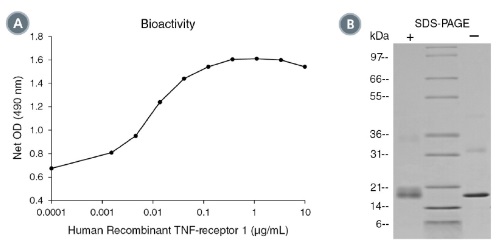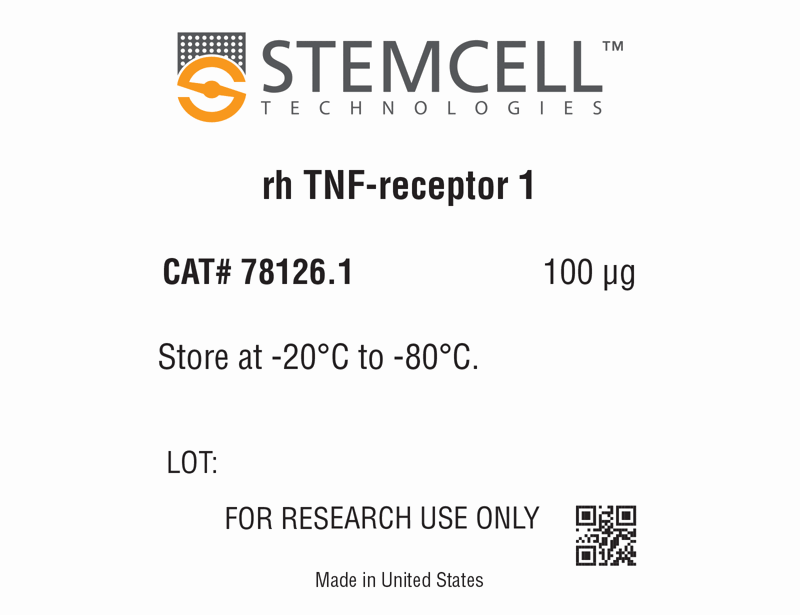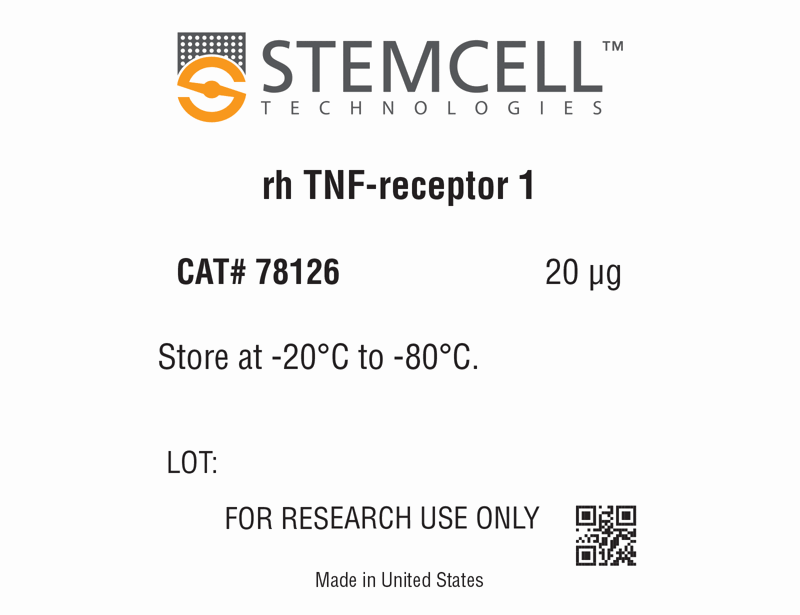Human Recombinant TNF-receptor 1
Tumor necrosis factor receptor 1
概要
Tumor necrosis factor receptor type 1 (TNFR1) is a member of the TNF receptor superfamily and is activated upon binding to TNF-α. TNFR1 activates NF-kB and MAPK pathways, which results in inflammation, apoptosis, and inhibition of tumorigenesis and viral replication. TNFR1 is essential for transducing TNF signals during organogenesis and surviving infections caused by intracellular bacteria (Hehlgans & Pfeffer). Soluble TNFR1 is released into the bloodstream to bind circulating TNF-α and suppress inflammation. Mutations in TNFR1 result in TNFR-associated periodic syndrome that manifests with inflammatory episodes (Turner et al.).
Subtype
Cytokines
Alternative Names
CD120a, TNFAR, TNFR55, TNFRSF1A
Cell Type
Granulocytes and Subsets, Monocytes, T Cells
Species
Human
Area of Interest
Immunology
Molecular Weight
18.3 kDa
Purity
≥ 95%
技术资料
| Document Type | 产品名称 | Catalog # | Lot # | 语言 |
|---|---|---|---|---|
| Product Information Sheet | Human Recombinant TNF-receptor 1 | 78126, 78126.1 | All | English |
| Safety Data Sheet | Human Recombinant TNF-receptor 1 | 78126, 78126.1 | All | English |
数据及文献
Data

(A) The biological activity of Human Recombinant TNF-receptor 1 was tested by its ability to neutralize human TNF-alpha induced cytolysis of L929 cells. Cell viability was measured after 66 hours using a fluorometric assay method. The EC50 is defined as the effective concentration of the growth factor at which cell viability is at 50% of maximum. The EC50 in the above example is 0.01 μg/mL. (B) 1 μg of Human Recombinant TNF-receptor 1 was resolved with SDS-PAGE under reducing (+) and non-reducing (-) conditions and visualized by Coomassie Blue staining.



